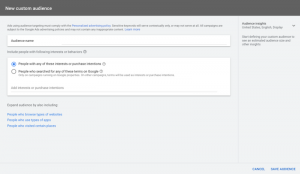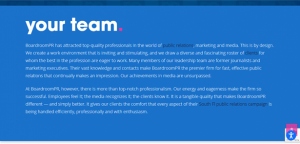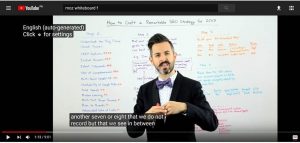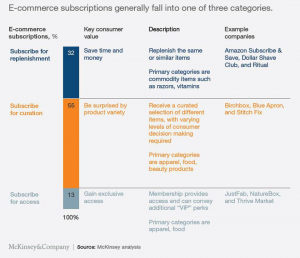
Anyone with an online presence is vulnerable to potential threats. For influencers who share information about their family and friends, the danger is increased but as a professional, you need to be out there. Can you protect yourself and still share things publicly?
This guide will help you reduce security risks while maintaining your online presence.
1. Danger: Social Media Stalking
We’ve all heard horror stories of someone who left a social media venue or closed down an account and opened a new one because of that stalker who would not go away. Influencers need to protect their online presence. Or, how about that time I watched “Flip or Flop” one night and the next day the ad was all over my Facebook feed. Your information is being bought and sold all the time, so influencers needs to beware.
Solution: Secure Your Social Media

Facebook is notorious for security issues and privacy policy changes. The good news is that it provides several options that you can use to keep your account secure. Facebook users can set who can see each of your posts: Friends, Acquaintances, or Public for all to see.
As an influencer, I keep some or most of my posts private or just for friends, but make public comments in addition to publicly sharing my campaigns. Don’t keep everything private and remember that you can post separately from your fan page and personal pages.
If you mark the wrong option on a post in Facebook such as making a “Friend Only” post “Public,” you can go back and change those settings.
- Under “Privacy,” select the setting to limit the audience for past posts.
- Here you can change them all to “Friends Only” rather than “Public” or “Fiends of Friends.”
- Limit who can contact you on Facebook by employing strict filtering and block any unfamiliar followers.
- You can set similar options in Google+.
Finally, do not publish your phone number or address on your social media setting because it can be easily hacked or sold to a third party for marketing purposes. Also, apps have access to your information, making you a marketing target. You should periodically search through connected apps and delete any that you no longer use.
2. Danger: Location Privacy
Smart phones have made it challenging to retain the privacy of your location. In addition, keep in mind that if you are posting while traveling, that can be a big temptation for thieves who know your house is now unoccupied.
Solution: Secure Your Smart Phone
Protect your privacy by turning off anything that can “find” you on your smartphone when not in use: location settings, Bluetooth, Wi-Fi and NFC. Your security is worth the extra step and it saves battery life. In addition, open Wi-Fi can make your phone vulnerable, so use it sparingly, avoid accessing password protected or financial information on these networks and remember to turn it off when done.
Checking in is another way you can make yourself vulnerable. In Facebook, you should select “Friends only” for check-ins – unless it’s required for an influencer event. I would tread carefully with this option if your home is vacant at the time.
Finally, do all the things you do to protect your computer:
- Set passwords and PINs on your phone
- Activate additional security
- Keep the security on the phone’s default system
- Backup your data
- Download apps only from trusted providers.
The FTC provides a list of tips depending on your phone’s OS. In addition, you might want to put additional security software on your phone, such as apps that can lock or locate your phone, or theft protection from your provider.
3. Danger: Photo Theft
Photo theft is a big problem. There are lots of tales of bloggers finding their photos of their children stolen and reused by companies they have OR haven’t worked with, and even found on porn sites.
Solution: Protect Your Photos
To keep your family safe, I recommend not showing any kind of skin on your kids – diapers, swimsuits – as this can be horribly abused. Use a good graphics program to strategically set watermarks or crop out faces on your kids’ photos so that they are less likely to be stolen – and more pinnable. This ensures copyright protection too.
You should also remember that you need the permission of others to post their photos publicly – that means friends and family, teachers and staff, even your spouse and adult children! However, photos with more people in it are less likely to be stolen. Crop others out of the frame or blur their faces to be unrecognizable.
If your personal photos have been stolen or used without permission by a company, contact them and ask them to remove it. If they refuse, before you pursue the matter any further, find out if you signed the rights to your photo away in any agreement. You may need to seek legal counsel if they will not comply. You can also file a Digital Millennium Copyright Act (DMCA) notice through Google.
4. Danger: Too Much Personal Information
A lot of bloggers don’t think about this, but what you write about your children will be online forever. Future employers and schools can Google them and find your posts about medical conditions, bed-wetting or inappropriate behavior. Writing or posting about others or work can get you in hot water too.
Solution: Set Boundaries
Every influencer should be mindful of the privacy of their family, friends and anyone else in their daily life. While a traffic ticket or shopping fiasco may make an amusing post, consider these questions before sharing the story:
- Does this post make someone look bad or hurt their business?
- Can this negatively affect how a person would look at my child/spouse/relative at any time in the future?
- Is there any possibility that this situation can end up in court?
I recommend changing the names of people, places and events you are sharing about, or better yet, write about the issue in general. For your family, set clear boundaries about what you will and will not discuss about them. For example, I never blog anything but positive information about my husband – even though he’s not perfect! In order to protect my marriage, this is a boundary I will not cross.
5. Danger: Information at Large
There’s the tale of the blogger who recently got a phone call at home from a reader asking about one of her posts. You need to protect your personal information.
Solution: Protect Your Data & Information
You may be surprised that your address and phone number are incredibly easy to find. For example, this information may be shown when your URL’s legal standing is searched unless you take steps when registering your domain. Consider using a locked and/or private domain setting to keep your phone, address and other domain information private.
Protecting your data is a challenge since it can be bought and sold through data warehouses but you can opt out of information search lists. It’s not always as easy as it sounds. Some will make you register and opt in first. PrivacyRights.org has an extensive list of information brokers. Read “How to Remove Yourself from People Search Websites” for insight on how to do this successfully.
In addition, you can use third party solutions to protect your information when online:
- Disconnect blocks malware and trackers, allows users to see who is tracking them and keeps searches private.
- Abine protects passwords, email and payments and helps users make choices about who sees their data.
- Ghostery helps users understand data that is collected about them and who collects it.
In addition to these 5 steps to social media safety, remember to protect your blog from hacking and spam. There is no guarantee that your information will always be secure, but logical measures can protect you and your family from harm.
(212)








